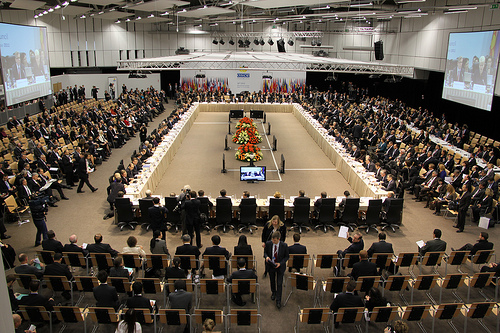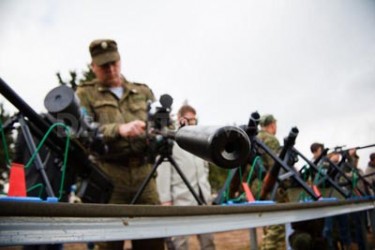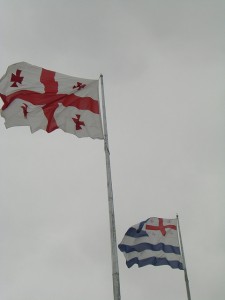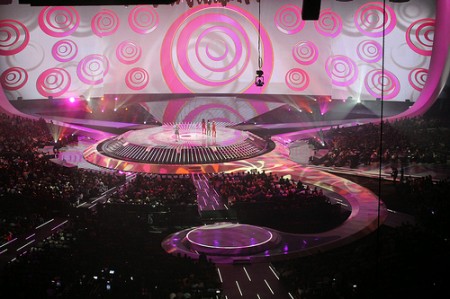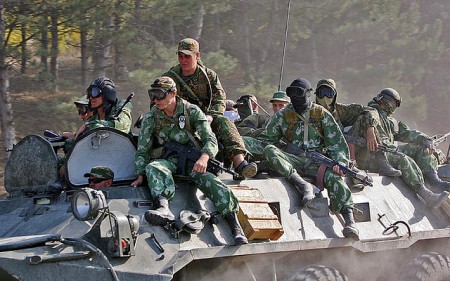
Whenever Ilya Beruashvili hears his dog bark, he knows the Russians are at the gate.
For the past five years, Beruashvili, 53, who lives on the outskirts of the Georgian village of Ditsi, has watched from his windows as Russian soldiers stationed in the neighboring separatist territory of South Ossetia have patrolled the fields he used to farm.
They are coming ever closer. A few months ago, soldiers started building a fence just a stone’s throw from his shed, a structure that will leave Beruashvili’s house and fields outside of Georgian jurisdiction and inside Russian-guarded, breakaway South Ossetia.
Under the terms of the 2008 cease-fire agreement between Georgia and Russia, the area, just a few kilometers east of the South Ossetian capital, Tskhinvali, lies in territory where Russian troops should not be. But that hasn’t stopped the Russians from building a barrier there.

